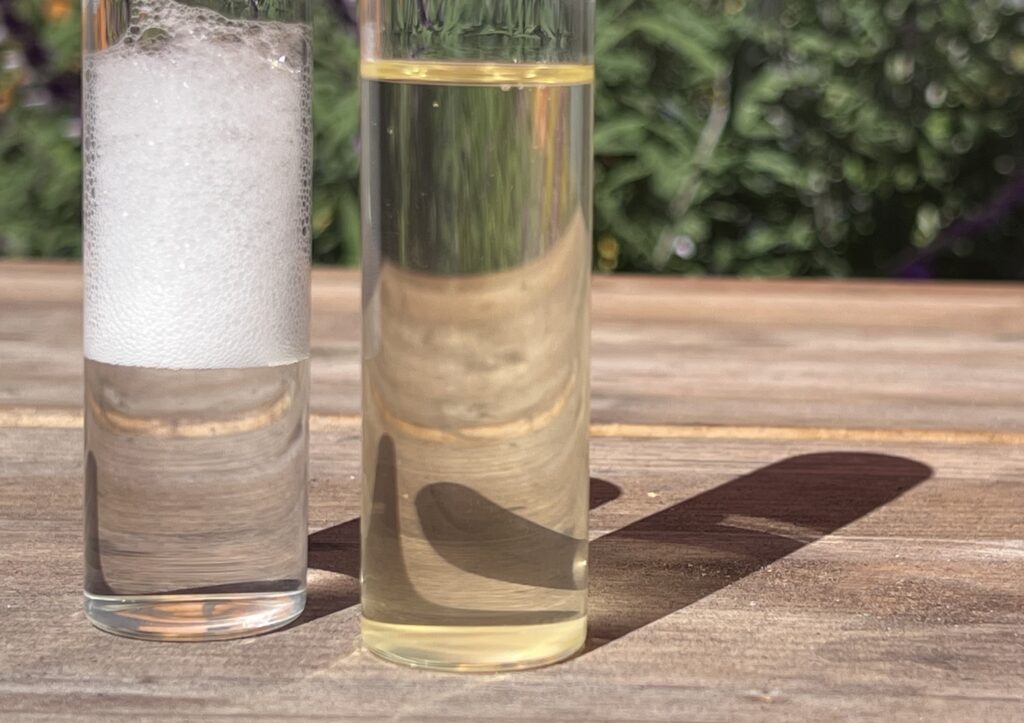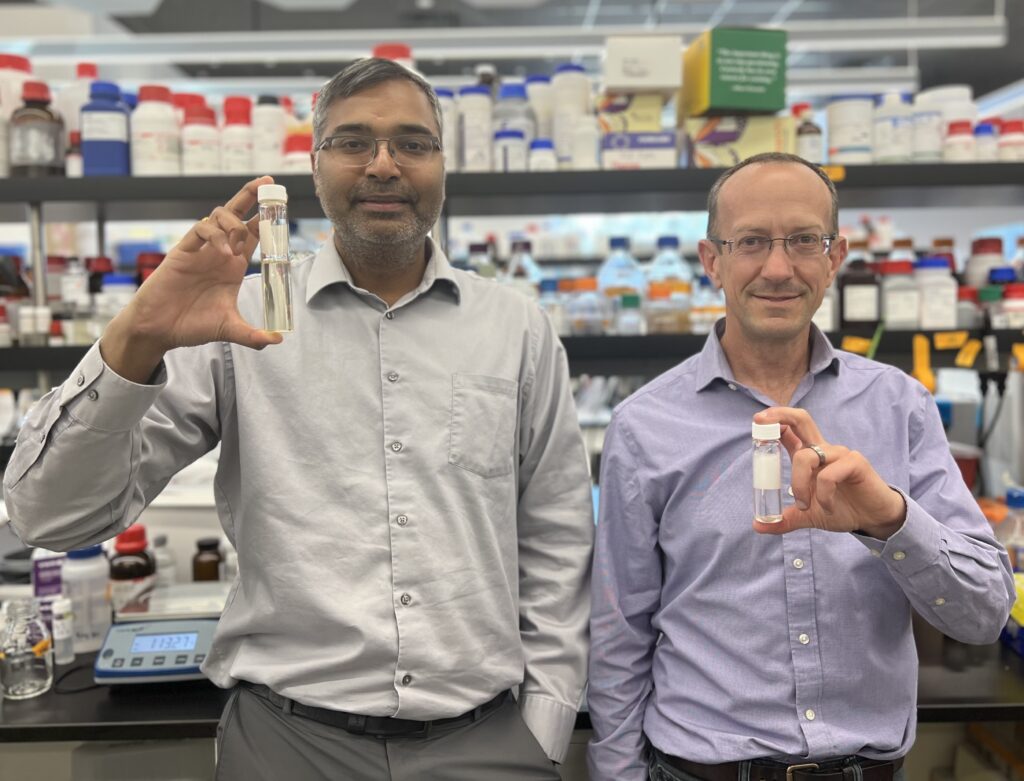
Many everyday items such as dish soap, laundry detergent, skin creams and lotions, and even pre-prepared foods and drinks all have something in common — they all contain surfactants.
Surfactants are molecules that reduce surface tension, allowing products that contain multiple ingredients to mix and stabilize properly. They’re used as cleaning agents, detergents, food emulsifiers, and as performance enhancing additives for polymers.
Biotech company Ruby Bio is commercializing a new category of biosurfactants made with microbial fermentation using a technology that was initially discovered at UC Davis. Ruby Bio’s biosurfactants are high-performing, gentle, and readily biodegradable, and they are made from natural, renewable ingredients.
“This is a growing market valued at over $50 billion,” said Charlie Silver, CEO of Ruby Bio. “We wanted to create products that could have a huge impact in a changing market. Surfactants power almost everything in your kitchen cabinet, your medicine cabinet — they enable so many products in our daily lives.”
For the initial scale-up of their biosurfactant, the company partnered with the Advanced Biofuels and Bioproducts Process Development Unit (ABPDU) at Lawrence Berkeley National Laboratory in 2022.
“We have an unconventional microbial host, so ABPDU’s experience working with a wide variety of microbes was a plus,” said Pavan Kambam, CTO at Ruby Bio. “ABPDU’s technical expertise and the fact that the facility is set up end to end — from pretreatment to scale-up — was also a big advantage for process synthesis.”
While at ABPDU, Ruby Bio’s biosurfactant production and recovery was successfully scaled up from 10 L to 300 L, setting the stage for commercialization. The product recovery steps proved to be straightforward, an encouraging finding from a techno-economic standpoint.
“That validated that the tech transfer and piloting worked,” Silver said. “Everything worked flawlessly, and we were able to be in the lab with ABPDU’s team to witness and learn from the process.”

The successful scale-up provided Ruby Bio with demonstration material for prototyping that allowed them to advance to commercial scale production. Since working with ABPDU, the company has scaled up their product to the 5,000 L scale, and has developed a full portfolio of surfactants.
“Everyone is looking for naturally derived replacements that deliver the same performance,” Silver said. “Our products perform better and they are more gentle to skin and fabric, and they contain no toxic ingredients.”
Moving forward, Ruby Bio plans to explore other products with different industrial applications.
“All of this was based on the early work ABPDU did for us,” Silver said. “We couldn’t have done it without the missing link that ABPDU provided in helping us get off the bench and scale up in large bioreactors. ABPDU effectively de-risked our product from both a technical and economic perspective.”
As a former fermentation engineer at ABPDU, Kambam recognizes the role that scale-up plays in getting biotech companies off the ground.
“You can’t start a biotech company these days unless you have access to the types of capabilities that ABPDU has,” Kambam said. “We couldn’t have asked for a better partner for efficient pilot scale production.”
The ABPDU is supported by the U.S. Department of Energy’s Bioenergy Technologies Office.